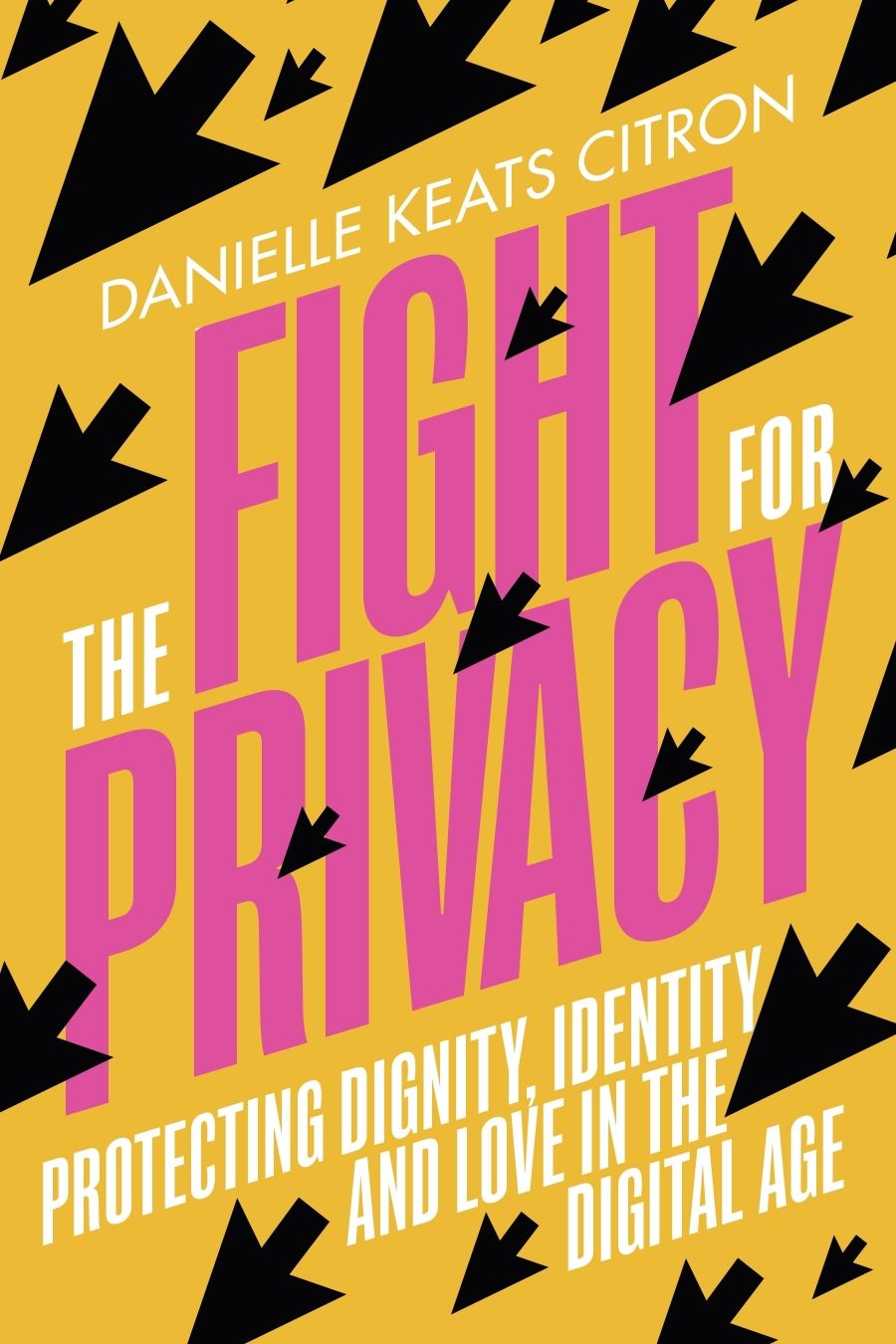
- Free Article: No
- Contents Category: Technology
- Review Article: Yes
- Article Title: Privacy and power
- Article Subtitle: A practical look at complex issues
- Online Only: No
- Custom Highlight Text:
Privacy crises come in waves, usually spurred by public panics over new technologies and their exploitation by those in power. In the 1890s, it was the evils of ‘instantaneous photography and newspaper enterprise’ that pushed Harvard jurists Samuel Warren and Louis Brandeis to famously advocate for a new common law (‘judge made’) right to privacy. In the mid-twentieth century, the availability of the contraceptive pill set the stage for the US Supreme Court’s declaration of a constitutional right to privacy in the (now threatened) decision of Griswold v Connecticut (1965). Similarly, fears about ‘King Kong’-sized government data centres ultimately led to the passing of the US Privacy Act 1974. In her latest book, The Fight for Privacy, Danielle Keats Citron, a professor of law at the University of Virginia, paints a vivid and compelling picture of privacy now under siege by online invaders. She argues convincingly for a new US civil right to ‘intimate privacy’, and sets out a precise and practical path towards achieving it.
- Featured Image (400px * 250px):

- Alt Tag (Featured Image): Jessica Lake reviews 'The Fight for Privacy: Protecting dignity, identity and love in the digital age' by Danielle Keats Citron
- Book 1 Title: The Fight for Privacy
- Book 1 Subtitle: Protecting dignity, identity and love in the digital age
- Book 1 Biblio: Chatto & Windus, $35 pb, 320 pp
- Book 1 Readings Link: https://www.booktopia.com.au/the-fight-for-privacy-danielle-keats-citron/book/9781784745127.html
This is a book about expressions and implications of power in the digital age: the power to visually violate bodies, steal and exploit information, abuse and intimidate. It is rich with meticulously collected examples, from business models to bureaucratic practices, or the terror inflicted by domestic partners. Citron carefully documents the intricacies of current imbalances and inequities, and pinpoints processes available to correct them. She favours harnessing the US civil rights tradition for these reasons: its ability to ‘constrain public and private powers’; its emphasis on dignity and human flourishing; and its recognition of structural discrimination. But the effects of such a right would, as she suggests, be felt globally, not just by providing a roadmap for reform elsewhere, but due to the concentration of large tech companies in the United States with control of websites, search engines, and AI development.
Citron reminds us that privacy is vivid and visceral, not clean, boring, and impersonal like those endless privacy policies we encounter. Her prose is warm and lucid, and avoids hyperbole. It culminates – like her previous book Hate Crimes in Cyberspace (2014) – in a much-needed wake up call. Amazon’s Halo monitors your heart rate, oxygen level, daily steps, body fat, and mood (from your tone of voice). Tinder collects your dating information, including the ethnicity and gender of your dates, location, and HIV status. US State Medicaid gathers data about poor pregnant women’s history of sexual assault, abortion, prostitution, school expulsion, homelessness, domestic violence, and addiction. The data broker company Oracle knows if someone has searched for abortion services. Citron’s book was written before Justice Samuel Alito handed down his decision overturning Roe v Wade 1973 (protecting access to abortion within a US constitutional right to privacy) – a moment that underscores the grave dangers created by the accessibility of information about pregnancy and women’s bodies.
Privacy violations are often attributed to the advent of new technologies, but Citron deftly highlights how they are a choice, not an unintended or inescapable side effect of the digital economy. The Fight for Privacy focuses on the acts and motivations of those she calls ‘Privacy Invaders’, mostly men and large organisations around the world – companies and government – who choose to invade our privacy for economic exploitation, voyeurism, and political gain. Men in South Korea record women urinating, undressing, and washing by installing hidden cameras in public restrooms, gym showers, and dressing rooms. In Iceland, after she requested a divorce, a Bulgarian woman’s abusive husband sent old footage of her masturbating to the parents of her son’s friends, the mayor of her hometown, and colleagues at the primary school where she worked. When investigative journalist Rana Ayyub criticised Indian Prime Minister Narendra Modi, she opened an email from a Modi government source to find that she had become the victim of a viral deep fake pornographic video.
Citron is clear about the relationship between ‘Privacy Invaders’ and ‘patterns of victimization’: around the globe, women, children, LGBT people, those belonging to ethnic and racial minorities, and persons with a disability are disproportionately targeted and impacted. Men are more likely to be perpetrators. The harms occasioned by such attacks are serious, persistent, and work to reinforce ‘bigoted and gendered stereotypes’. But, returning to one of Citron’s main points, they also fundamentally shape the way individuals see themselves: ‘damaged slut’, ‘disgusting’, ‘degenerate’, ‘hypersexual’, ‘tainted and dirty’. Men who suffer such violations feel emasculated or rather, as Mary Ann Franks (law professor and one of Citron’s collaborators) puts it, the shame of ‘feeling like a woman’.
Citron advocates privacy reform in two areas: law and social norms. In Silicon Valley, for instance, tech company engineers must look like everyone, ‘not only like white or Asian men’. With regards to the legal agenda, a civil right to intimate privacy would provide victims with valuable injunctive relief by allowing a court to compel a defendant to, say, remove, block, or de-link intimate images from websites. Search engines and content platforms in the United States should be deprived of their current legislative shield by amending section 230 of the paradoxically named Communications Decency Act 1996. In addition, Citron advocates for comprehensive federal privacy laws that would obligate private and public entities to act as ‘data guardians’. This would amount to a version of Australia’s National Privacy Principles with greater scope and sharper teeth. Citron is well aware that her book contains dangerous ideas that have the potential to radically disrupt the status quo. ‘No doubt,’ she writes, ‘companies will marshal their lobbying power to defeat my proposals.’
Citron champions the power of collective efforts to secure change. Since her last book, she (in hand with Mary Ann Franks, Cyber Civil Rights Initiative founder Holly Jacobs and others) has been instrumental in leading US law reform and shifting norms in Silicon Valley with respect to non-consensual pornography and online harassment. ‘Change isn’t an academic fantasy,’ she writes. ‘It is a real thing, and it is in reach.’ Citron is far from naïve, but she is optimistic: ‘Some steps forward, and a few back – onward we go.’
Warren and Brandeis’s 1890 article ‘A Right to Privacy’ is often described as the most influential law review article ever written. With her intellectual erudition and commitment to privacy as a force for good, Citron is the Warren and Brandeis of her generation. What gives her the edge is a real-world understanding of privacy’s relationship to diverse permutations of power and her ambition to address the disproportionate impact of violations on women and minorities.

Comments powered by CComment